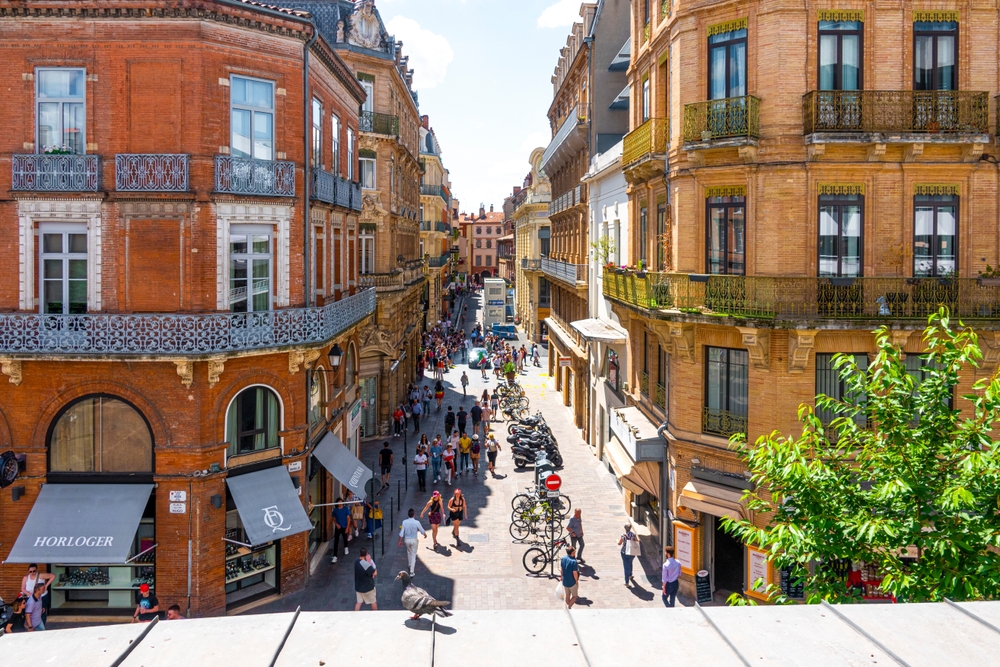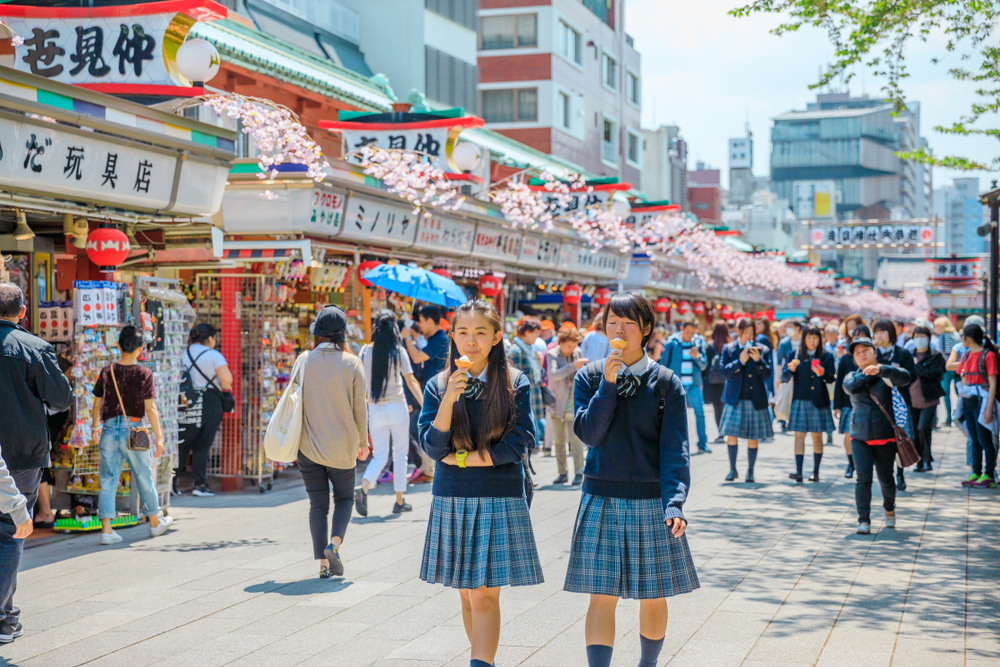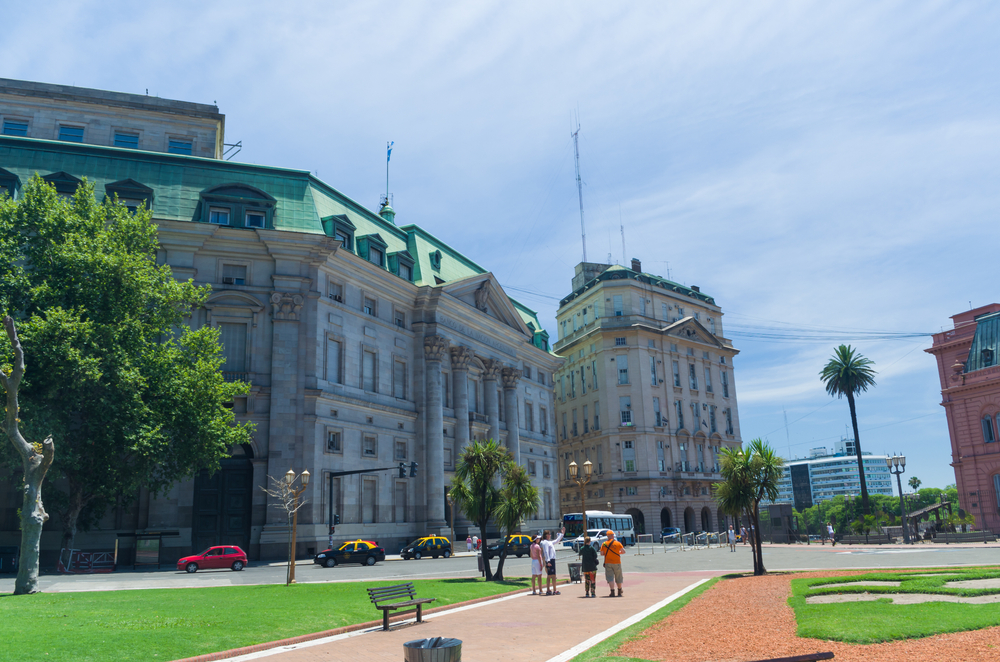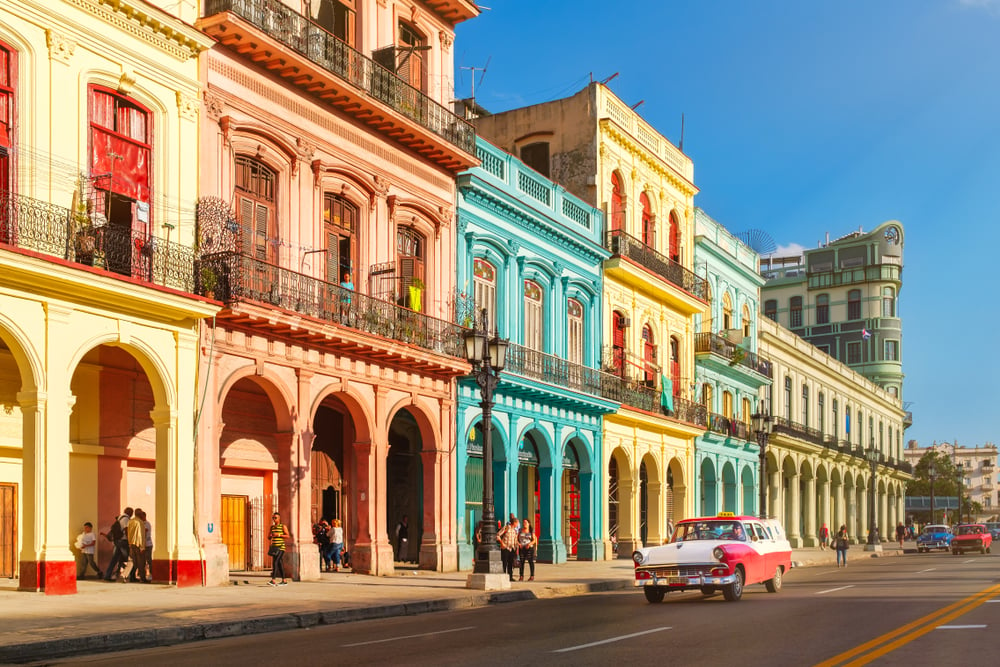Some places are just tired of American antics, and they’re not hiding it.

There was a time when having an American passport felt like a golden ticket. People smiled wider, doors opened faster, and tourists from the States were treated like VIPs in many parts of the world. But things have changed. These days, in some countries, Americans are getting greeted with suspicion instead of warmth—and it’s not just about politics or past wars. It’s about behavior, entitlement, and the exhausting footprint that sometimes follows travelers from the U.S.
This growing cold shoulder isn’t universal, but it’s noticeable enough to spark conversations. Many locals have grown weary of the loud complaints, cultural cluelessness, and the “my way or the highway” attitude some American tourists bring with them. Others are simply pushing back against what they see as a kind of cultural domination. Whatever the reason, if you’re planning to travel abroad soon, you might want to know which countries are starting to feel fed up.
1. France is over the arrogance and entitlement.

France, long romanticized by American travelers, has grown weary of being treated like a theme park instead of a country with its own rules, culture, and expectations. Parisians especially are tired of tourists who expect everyone to speak English fluently and immediately, or who act annoyed when service doesn’t follow the fast-paced American rhythm, as stated by Alfi Nur Nadiva at Medium.com. It’s not just the language—it’s the attitude. The stereotype of the rude French waiter might have started as a reaction to rudeness from abroad.
There’s also a subtle resentment of cultural disrespect. Wearing flip-flops to fine restaurants, speaking loudly in quiet museums, or treating historic landmarks like selfie backgrounds has led to frustration. Americans who come with a sense of cultural curiosity still find warmth, but those who arrive expecting “France, but convenient” often go home with stories of icy glares and brisk replies. France is still beautiful, but it’s asking tourists to bring humility, not hubris.
2. Japan wants respect, not disruption.

Japan thrives on social harmony and unspoken rules, which often clash with the loud, bold nature of American tourism. What might seem like friendly enthusiasm or harmless individualism to an American can come across as disruptive or disrespectful to locals. Talking on public transportation, being boisterous in restaurants, or ignoring basic etiquette like taking off shoes indoors—these actions irritate Japanese citizens who value order and respect.
Beyond behavior, there’s also a growing concern about overtourism. Cities like Kyoto have seen ancient streets overwhelmed by tourists, some of whom disregard sacred customs or trespass into private areas for the perfect photo, as reported by the authors at The Guardian. American influencers, in particular, are drawing backlash for treating temples like Instagram stages. The country still welcomes tourists with grace, but it increasingly prefers those who do their homework, blend in, and understand that in Japan, humility isn’t optional—it’s a survival skill.
3. Italy is done with the bad manners and mess.

Italians are passionate about their culture, history, and food, and they expect visitors to treat those things with the same reverence, as mentioned by researchers at Everyculture.com. Unfortunately, many American tourists come with expectations instead of appreciation. Asking for ketchup at a trattoria, demanding ice in wine, or scoffing at slow service has worn thin. Italy is proud, and when travelers ignore its rhythms, locals feel disrespected, not just inconvenienced.
The rise in disrespectful tourist behavior—climbing statues, littering in historic piazzas, or swimming in forbidden fountains—has turned frustration into outright bans in some cities. Venice, Florence, and Rome have all tightened tourism rules, and Americans often bear the brunt of the backlash because of their reputation for ignoring them. Italy still wants visitors to fall in love with its charm, but it also wants them to act like guests, not demanding customers looking for an Italian Disneyland.
4. Thailand is fed up with loud and reckless behavior.

Thailand’s image as a carefree paradise has attracted all kinds of travelers, but the downside is the flood of visitors who come with zero regard for local customs. Many Americans show up assuming anything goes—drinking in excess, disrespecting temples by dressing inappropriately, or treating the locals like part of a budget vacation experience rather than real people with deep cultural traditions. It’s not just obnoxious—it’s offensive.
The backlash has been growing, particularly in tourist-heavy areas like Phuket and Bangkok. Local businesses and residents have become less tolerant of bad behavior, and social media videos of disrespectful foreign tourists have only fueled the resentment. Americans often stand out because they’re louder, more confrontational, or quicker to argue when told they’re out of line. Thailand is still generous to visitors, but its patience is wearing thin, especially for those who refuse to adapt.
5. Spain is tired of being overwhelmed and underpaid.

Spain, especially in cities like Barcelona, has become a hotspot for American tourists looking for sun, sangria, and cheap thrills. But the influx has driven up prices for locals, displaced long-time residents, and strained city infrastructure. Locals blame Americans—among others—for transforming neighborhoods into party zones, where local life gets pushed out in favor of short-term rentals and late-night noise.
Beyond economics, there’s frustration over behavior. Public drunkenness, shouting in the streets, and general disrespect for cultural norms have turned parts of Spain into caution zones. American tourists who treat the country like a frat party backdrop are particularly unwelcome. Even more moderate visitors sometimes get lumped in with the worst offenders. Spain wants respectful visitors who appreciate its lifestyle—not ones who try to impose their own or treat it like a budget Ibiza knockoff.
6. Germany is watching and judging—quietly.

Germans are generally polite and reserved, but don’t mistake that for indifference. When American tourists talk loudly in quiet spaces, cut in line, or complain about rules, it leaves a lasting impression. Germany values structure, respect for systems, and following the rules—traits not always associated with American travelers. When those values are ignored, irritation builds, even if it’s not always vocalized.
There’s also growing discomfort around politics. Some Germans see American tourists as loud symbols of a country that’s politically volatile and culturally domineering. Travelers who brag about guns, drop casual xenophobia, or assume German life mirrors American conveniences often find themselves on the receiving end of frosty indifference. Germany still welcomes tourists, but it also expects them to adapt—and it has little patience for arrogance or ignorance.
7. Argentina resents the ignorance and entitlement.

Argentina has long welcomed visitors with open arms, but many locals are tiring of American tourists who arrive with little knowledge and big opinions. The country’s complex history and economic struggles require sensitivity—not casual judgments or unsolicited advice. When travelers question pricing with suspicion or comment ignorantly on politics, it often feels condescending, not curious.
In places like Buenos Aires, locals are also frustrated by tourists who treat the city like an Instagram set rather than a living, breathing culture. Americans who expect things to run on their timeline or complain loudly when they don’t get what they want often leave a bad impression. Argentina wants visitors who show up curious and humble—not those who act like critics dropped into a foreign film they don’t understand.
8. Greece is over the summer invasion.

Greece’s beauty has made it a magnet for American tourists, especially during summer. But in islands like Santorini and Mykonos, the sheer volume has pushed locals to their breaking point. What used to be peaceful villages are now overrun with camera-toting crowds, noisy nightlife, and soaring prices—much of it blamed on Western tourists chasing a Mediterranean dream without respecting the local cost.
Greek locals are also tired of cultural laziness. Ignoring dress codes in monasteries, disrespecting sacred spaces, or treating service workers like personal assistants have turned hospitality into hostility. American tourists, particularly those arriving via cruise ships or luxury travel packages, are sometimes seen as entitled and out of touch. Greece still welcomes visitors, but it increasingly favors those who show reverence instead of just cash and cameras.
9. South Korea is wary of cultural clumsiness.

South Korea is modern and dynamic, but it’s also steeped in tradition and etiquette—something that trips up many American tourists. Loud conversations, excessive public displays of affection, or failing to bow or show proper respect in temples and palaces can be seen as signs of arrogance. Locals may not say anything, but the disapproval is palpable.
There’s also frustration with the growing influence of Western culture, especially when it’s accompanied by a dismissive attitude toward local values. When Americans act like Korean customs are quirky or outdated, it sparks resentment. In a country that prizes education, formality, and humility, the casual, sometimes brash nature of American tourists can feel intrusive. South Korea still enjoys hosting foreigners, but it increasingly expects them to tune into the social cues—quietly and respectfully.
10. Cuba has its guard up—and for good reason.

Cuba has a complex relationship with the United States, one that mixes history, politics, and economics into a deeply emotional cocktail. While Cuban people are famously warm, there’s still a layer of skepticism toward American visitors, especially those who come off as patronizing or ignorant of the country’s struggles. Acting surprised by poverty or romanticizing life under hardship doesn’t go over well.
Some Americans arrive expecting a tropical playground with vintage cars and cheap cigars, without recognizing the deep political scars still felt by locals. There’s resentment toward tourists who overlook the U.S. embargo’s impact or assume Cubans are eager for American-style capitalism. Visitors who approach Cuba with humility and a willingness to listen are often embraced—but those who come with a savior complex or a dismissive tone find the welcome mat quickly rolled up.
11. China is increasingly closed off to Western influence.

China has become less welcoming to Americans over the past few years—not just because of politics, but due to growing cultural tensions and mutual suspicion. While many Chinese citizens remain polite and curious, the government’s messaging and tighter travel rules have made it harder for Americans to feel truly welcome. There’s an undercurrent of mistrust that colors many interactions.
Beyond policy, cultural misunderstandings abound. Americans who speak loudly, ignore personal space, or express strong political opinions can quickly make locals uncomfortable. Chinese society values harmony, subtlety, and face-saving behavior—qualities not always aligned with American tourist habits. There’s also growing sensitivity to Western critiques of Chinese life. Travelers who show genuine interest and restraint still find connection, but those who act like judges or jokers risk running into invisible walls.
